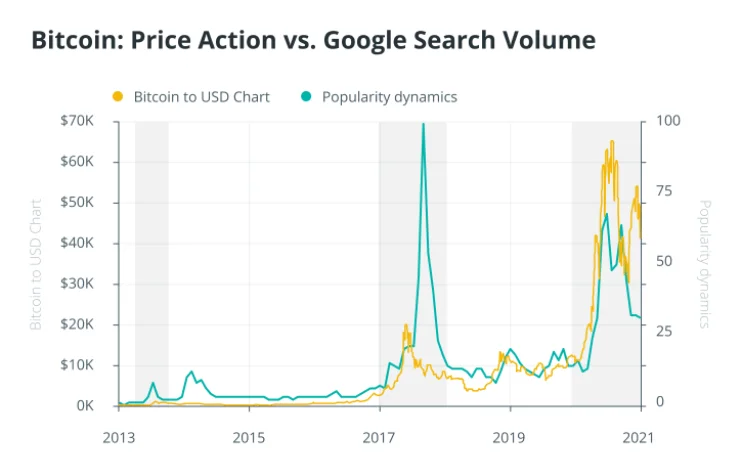Since the introduction of Bitcoin, Google has emerged as an effective barometer of the popularity of cryptocurrencies in general.

As of Monday, Google, the major indicator used to gauge the popularity of Bitcoin (BTC) and other cryptocurrencies, had celebrated its 23rd birthday.
The search engine, which was founded by Larry Page and Sergey Brin while they were both undergraduates at Stanford University, has spent the vast portion of its 23-year history as one of the principal entry points to the internet.
The primary technique for searching for new coins, keeping track of market trends, and learning how to buy cryptocurrencies has been Google since the creation of cryptocurrencies.
In light of the fact that internet search data are an ideal tool to analyze user behavior, Google Trends has established itself as an authoritative source for analyzing consumer interest in a near real-time manner. Trades are made with the help of the program, which examines the popularity of search queries over a specified time period in order to discover developing trends.
Initial coin offerings, also known as ICOs, decentralized finance, also known as DeFi, and nonfungible tokens, also known as NFTs, all saw a jump in Google Trends before taking center stage in the cryptocurrency community.

A fast search for Bitcoin reveals that internet users’ interest nearly exactly corresponds to the volatility of the largest cryptocurrency’s price, according to a recent study. In the case of Dogecoin (DOGE), a similar overlap may be observed in the charts.
Aside from the neutral data, Google’s attitude on cryptocurrency is consistent with the general public’s impression of the technology. Following the infamous Initial Coin Offering (ICO) boom, Google banned cryptocurrency-related advertising on its platform in March 2018 through an update to its Financial Services policy.
Since then, Google has mellowed its stance on the issue, declaring that cryptocurrency advertisements by regulated organizations are once again permitted.
While the company continues to prohibit DeFi advertisements or celebrity endorsements linked to cryptocurrency, advertisers who are registered with the Financial Crimes Enforcement Network can advertise their cryptocurrency exchange and wallet services.
